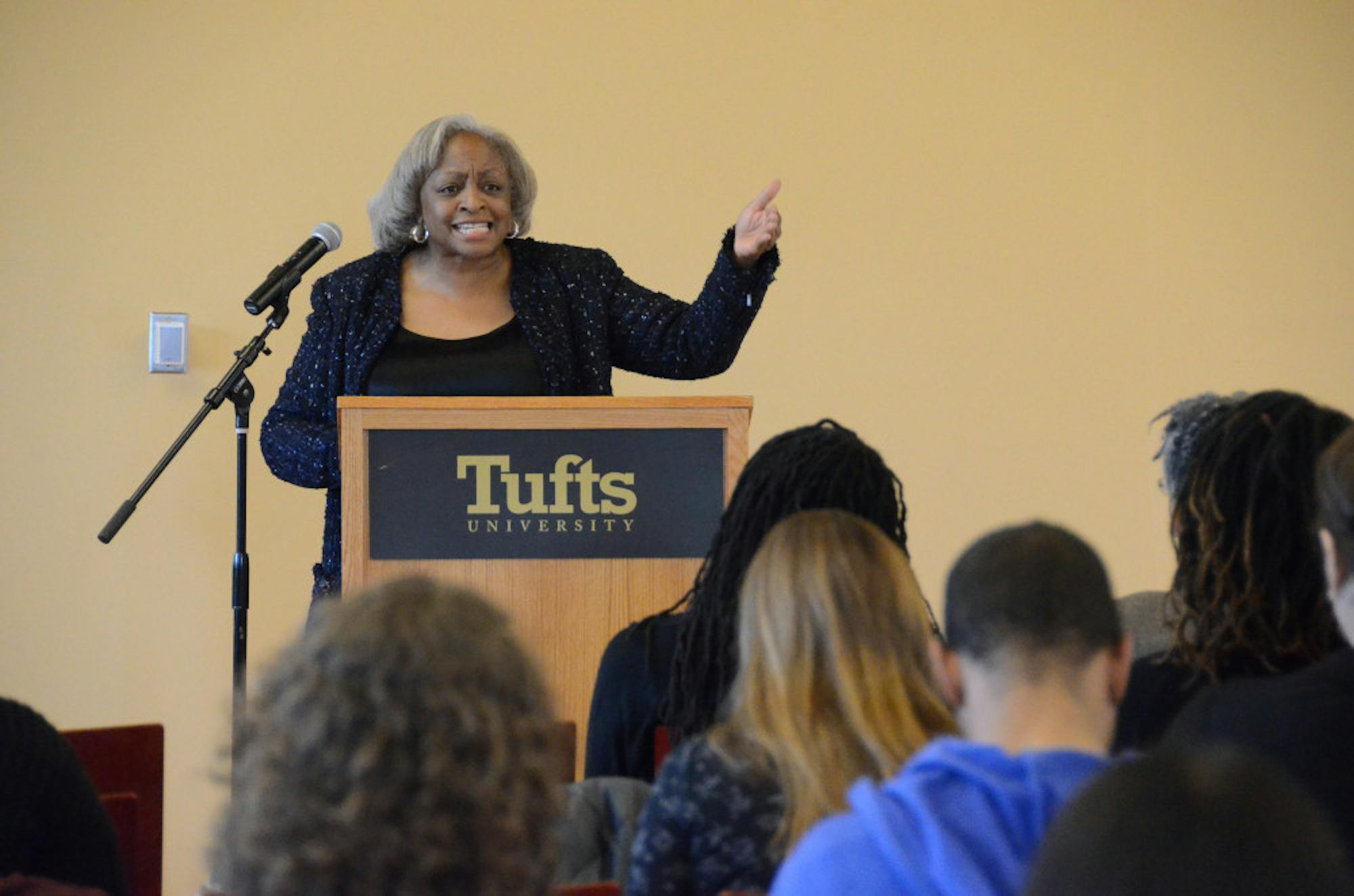Carol Anderson, a civil rights activist and professor of African-American Studies at Emory University, spoke about her recent book "White Rage: The Unspoken Truth of Our Racial Divide," at Breed Memorial Hall on Monday night. Approximately 130 undergraduate and graduate students, faculty and university staff attended the talk, which was followed by a question-and-answer session and a reception.
The talk, which was the fourth annual Africana Studies Distinguished Lecture, was sponsored by the Africana Studies Program; the Africana Center; the Consortium of Studies in Race, Colonialism and Diaspora and a number of other programs and departments on campus.
Anderson began the talk by explaining the importance of talking about white rage and letting people know that this concept exists. She explained that white rage consists of a wide range of policies with discriminatory intent.
"It sounds weird to talk about white rage, but we need to talk about it," Anderson said. "White rage is silent. It is done through court decisions, policies and legislatures."
Anderson said white rage is neglected and disregarded due to its quiet and less publicized nature, while "black rage" easily catches the eye of the media. She cited the protests and unrest in Ferguson, Mo. following the police shooting of Michael Brown in 2014.
"I see flames in Ferguson [on television], and I see how it doesn't matter whether it's MSNBC, CNN or FOX. They all describe the same phenomenon the same way," Anderson said. "Look at black people burning up where they live."
In particular, she said that media coverage of the Ferguson unrest was unfair in assessing what had led to those outbreaks in Missouri. She added that white rage, not black rage, has deepened the issue of racial tension in our country.
"[The media] described this as black rage ... No, this is white rage," she said. "I have lived in Missouri for 13 years, and I saw the way that state public entities use public policy to undermine African-Americans' access to their citizenship rights."
Throughout the talk, Anderson highlighted various decisions in which policymakers deliberately but surreptitiously infringed on the rights of African Americans. She used voter ID laws as an example and explained that state officials decide what kinds of government-issued identifications are allowed and what are not based on the type of people who are linked to certain forms of identification.
She also described how the war on drugs has historically affected African-Americans to a degree that is disproportionate to their rate of illicit drug use.
Anderson ended the talk by saying that the country needs to move forward against the tide of white rage and that people should work toward a more just future.
"It's time that we take our country forward, to the future, to the better future," Anderson said. "The land of opportunity did not have to be the land of missed opportunities. It is time to defuse the power of white rage."
Professor Adlai Murdoch, who directs the Africana Studies Program and helped organize the event, said the event was a success in terms of turnout. He also noted that the topic of the talk bears importance to students, who will effect policy change in the future.
"Professor Anderson framed white rage in terms of policy that ... impacts your life directly, and recognizing ways in which your life can be shaped directly and indirectly allows you to accept, resist, navigate and negotiate [the policy]," Murdoch said. "But you can't take a stance or take a position unless you know what is coming at you."
Agreeing with Murdoch, Jason Winikoff, a graduate student who attended the event, said this was the first time he had heard of the term "white rage," though he had heard about similar concepts before. He added that it is crucial for everyone in the university to know about the topic. He also encouraged students to be aware of the matter.
"Education and informing yourself and taking a step further to inform others as students ... is very important here," Winikoff said. "That's the first step."
Emory professor discusses legacy, causes of racial discrimination in United States






